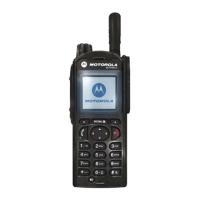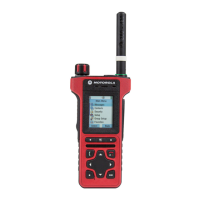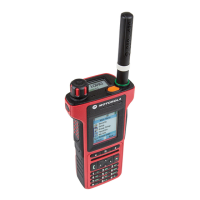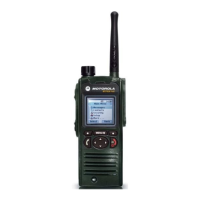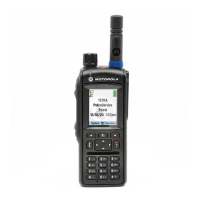DMO Parameters 3-79
March 2009 Chapter 3 - MTP850 Ex/MTP810 Ex Product Information Manual 6866588D21-D
• The terminal joins a call addressed to a foreign MNI (for example open MNI).
That is, reception of a call from a terminal of a foreign network addressed to the home network of the
terminal is not an inter-MNI call for the called party. Such a call, though inter-MNI for the calling
party, is considered intra-MNI by the called party.
19.8 DMO Security
19.8.1 Key Grouping Method
Stores the key group method currently in use.
The notation <K,E> means that out of the 30 static cipher keys (SCKs) stored in the MS, SCK1-
SCK-K*E are usable. The SCKs are split to K key-groups, each with E key-editions. Key-groups are
labelled KG1 to KG-K, and KGj is composed of SCKs j, j+K, j+2K, ..., j+(E-1)*K.
The possible 10 values are: <30K,1E> <15K,2E> <10K,3E> <7K,4E> <6K,5E> <5K,6E> <4K,7E>
<3K,10E> <2K,15E> <1K,30E>.
19.8.2 Default Key Group
This the default Key Group which applies for Individual communications. When key grouping
method is <K, E>, the available values that can be selected are one of KGj(j=1 ... K) or NO_KG.
19.8.3 Default Incoming Minimum Security Class
This is an additional parameter to DMO talkgroups. It is the default minimum security class for calls
and SDS messages reception. It applies to individually addressed communications as well as group
addressed communications that are not covered in Incoming Minimum Security Class.
• Security Class 1 - no encryption applied.
• Security Class 2A - the DM-SDU and any related traffic are AI encrypted.
• Security Class 2B - the destination address (SSI), DM-SDU and any related traffic are AI
encrypted.
• Security Class 2C - PDU encrypted from destination address element and onwards except for
source address type element, and any related traffic are AI encrypted.
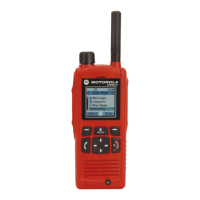
